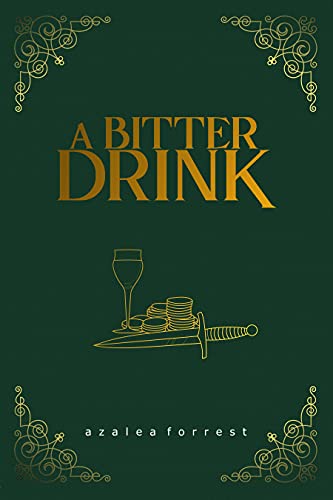I wanted to review this book because it was in the same batch as my own in this years SPFBO8. It even scored higher than mine in the initial review round, though both books were marked as semi-finalists. However, neither of them got through as the finalist in the batch.
But this book deserves a lot more attention than I think it’s received.
What It’s About
It’s about a plant-man. He’s a nobleman. The book starts off as a bit of a court-drama centered around his life. We learn a lot about him and the world.
Gradually some new characters are introduced and then the ‘event’ that sort of kicks off. All of our main character’s flaws come to bite him in the ass, and then it’s a quick read-through to see if he can become the person we hope he can be (and that deep down he wants to be).
There’s some action, some romance, some court intrigue, and a plot to take over the world.
What I Liked
I think starting with the good stuff is better, mostly because in this instance the bad stuff was pretty minor.
It’s a short novel, about as long as my novels, I didn’t bother counting but I suspect it’s at the 60k word mark. Which is great for me, because that’s bang-on the perfect length for my time availability. Oh I wish I had the time to read multi-tome epics, but I don’t. What I want is a story that gets to the point, stays on it, and delivers everything.
That’s exactly what A Bitter Drink does.
Now, a lot of people think fantasy needs to be long (they’re wrong) because you have to spend time world-building, and hand-holding the reader through the intricate justice system of the court and ugh. No, world-building doesn’t need to take up space.
This book very rarely does world-building on its own. When Forrest is doing world-building, it’s usually wrapped up in whatever else is happening. I.e., it’s done masterfully. There is a whole world in this book, featuring a pantheon, walking sentient trees from recent history, ongoing wars and feuds between races, a whole new race of plant-people, a court of lies and deceit, consistent magic system.
All of that is there, in a 60k word book. Any authors who want to write fantasy should read this book, just to see how much unique world can be crammed in something so small. There is a lot of imagination in this story.
Most of the story is written from the perspective of Rowan, our main character. Forrest does a very good job of putting us into the head of this cowardly, fun-loving, lazy, nobleman. It’s done so well because not only are we in the head of the plant-man, but we want him to succeed despite all of his flaws as a person. There are these little snippets where he shows the kind of self-awareness you assume someone like this wouldn’t have, but it’s there, and he just puts it to the side because addressing the problems would be too hard.
A very believable, seemingly unlikeable character.
Which begins me into…
What I Didn’t Like
The other supporting characters feel very much like templates. They are your staple archetypes in a way. It was a bit of a shame because at first, some of the characters are introduced with their own POV, and they seem unique. But they kind of devolve into generic interpretations of “fun-loving dwarf” for example.
But the main character, Rowan, comes alive so well in his POV sections, that you kind of don’t care that the other characters a little flat. It is his story, and everyone else around is supporting his story.
Unfortunately, there are two parts of the writing style I didn’t enjoy.
Firstly, there are some actions scenes, I think two or three chapters were mostly action (one in the middle, two toward the end); but… the action didn’t read well to me. I felt like it was a bit “blow by blow”, too much ongoing description of how the fight is happening. It got boring, quickly.
Especially the action in the middle as it was focused on a single character’s POV, so there wasn’t even the relief of multiple perspectives during the same battle that we get toward the end.
Secondly, there were some mid-scene POV changes. At first, I thought it was a mistake and I must have misread something, but as it occurred again and again, I realised it’s just how Forrest writes. For me personally, I don’t enjoy it, I sometimes find it confusing, and… not neat? IDK, Dune jumps through character’s heads all the time, so there’s nothing wrong with it, it’s just not something I enjoy.
There are a few other instances where the perspective doesn’t outright change, but the current POV character appears to know how another character feels about something. Considering POV changes do occur mid-scene in the book, I can see why this happened; but for me, it increases the distance between me and the POV character (or current POV character anyway).
But, these perspective issues didn’t take away much enjoyment from reading the story.
The final small thing I didn’t like was a few clunky sentences. I’ve read clunk in Stephen King as well, so no fault there. I mention it only because it happened a couple of times.
Final Thoughts

How many stories about bi-sexual, magical plant-men have you read? That’s what I thought.
Buy on Amazon https://www.amazon.com/dp/B09FFHXN5B

Leave a Reply
You must be logged in to post a comment.